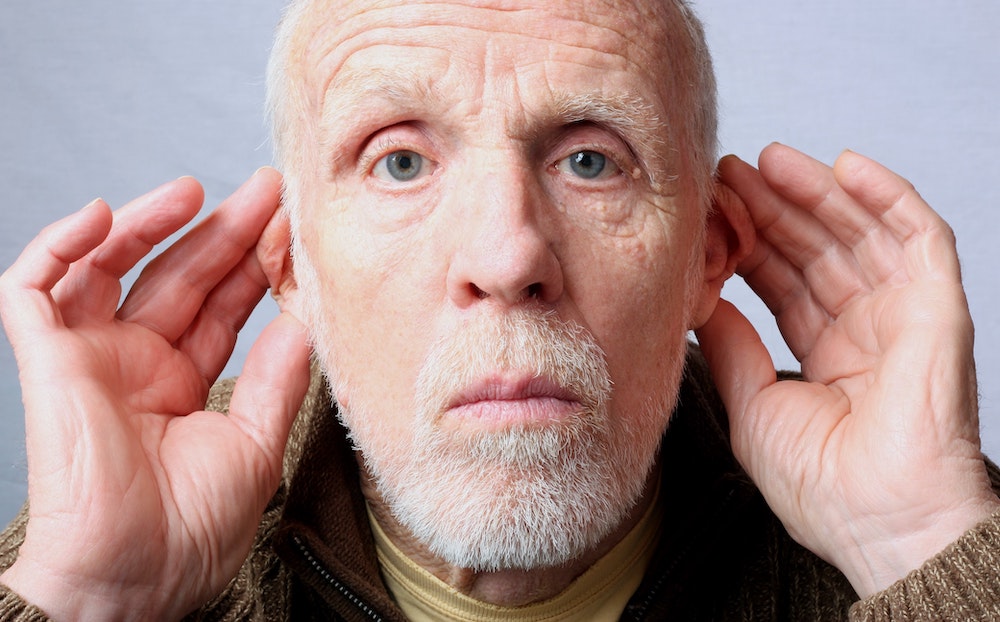First published by the Pacific-Palisadian
Many people are affected by hearing loss as they become older. According to the national institute for deafness, around 50% of adults ages 75 and over experience hearing loss. This can affect older people in many ways in their day-to-day lives including struggling to hear alarms or the doorbell and frustration watching the television.
Communication issues, however, can often provide the biggest challenge for someone with hearing loss. Loss of hearing can create significant difficulty in holding conversations, especially where lipreading is not an option (such as on the phone or wearing PPE). Thankfully, there are some things you can do to communicate more easily with someone who is hard of hearing.
Speak Clearly and Slow It Down
Speak clearly and loudly. Avoid shouting or speaking excessively slowly which may exacerbate the problem. Emphasize your speech to highlight the key points of the message and be as straight to the point as you possibly can. Say the person’s name before initiating a conversation. This gives them a chance to focus their attention. Check understanding by asking the person to repeat information back. If they haven’t understood you, repeat what you said using the exact same words.
Reduce Background Noise
Reduce background noise as much as possible. Even with hearing aids, background noise can create problems for hearing-impaired individuals. This includes turning down TV’s, radio and closing windows. If possible, try to speak somewhere without background noise and pick places that are quiet to get together.
Ensure Your Mouth Is Visible
Make sure that your mouth is visible. This includes ensuring there is adequate lighting and you are facing the person you are speaking to. Get the person’s attention before speaking. Covid-19 has made the use of PPE commonplace and this can hinder communication for the hard of hearing. Face masks with clear panels for the mouth can help carers with being understood by the older person.
Say Your Loved One’s Name Before Beginning A Conversation
Give them the opportunity to turn the focus of their attention onto you and the conversation. This helps them avoid missing words at the beginning of the conversation.
Get Expressive
Use gestures and be expressive when speaking to your loved one. These non-verbal methods of communication can help convey information and aid in understanding.
Visit an Audiologist for Hearing Health Assessment
Audiologists can determine the extent of hearing damage and identify the underlying cause. They can measure the loudness at which your loved one begins to hear sounds and distinguish between sounds and understood speech. As well as providing solutions such as hearing aids, audiologists also counsel on other ways to cope with hearing loss and help an elderly person accept the problem. In recent years, there have been great advances in hearing aid technology and many options are much more discreet and comfortable than they used to be.
Medi-Cal also provides some assistance towards hearing aid costs. They will pay up to $1,510 per person each year (between July 1 and June 30) for hearing aid benefits.
Use Technology
If you’re speaking from a distance, video conferencing tools such as Zoom and Skype can be easier than simply speaking on the phone. Many also have live captioning (automatically transcribed closed captions that appear on the screen). There are many apps that provide captions for calls too and even specially-built phones that add easy-to-read text on a large screen. Other helpful devices include visible doorbell alerts, flashing/vibrating clocks and phones and specially-designed burglar and smoke alarms.
Be Understanding
Remember to always exercise patience. As much as you may want the person with hearing loss to understand you, they also want to be able to listen. Be mindful that every person has their own preferred way of communicating, so ask how you can help improve your communication.
Get Expert Home Care from Luxe
Seek out experts like Luxe Home Care who have developed expertise in providing care to older individuals with hearing loss.
If you have noticed a decline in a loved one’s hearing, be sure to suggest they get a professional hearing test. Hearing loss is a treatable condition and an audiologist can find the cause of the issues, offer solutions and recommend ways to improve your loved one’s condition.








